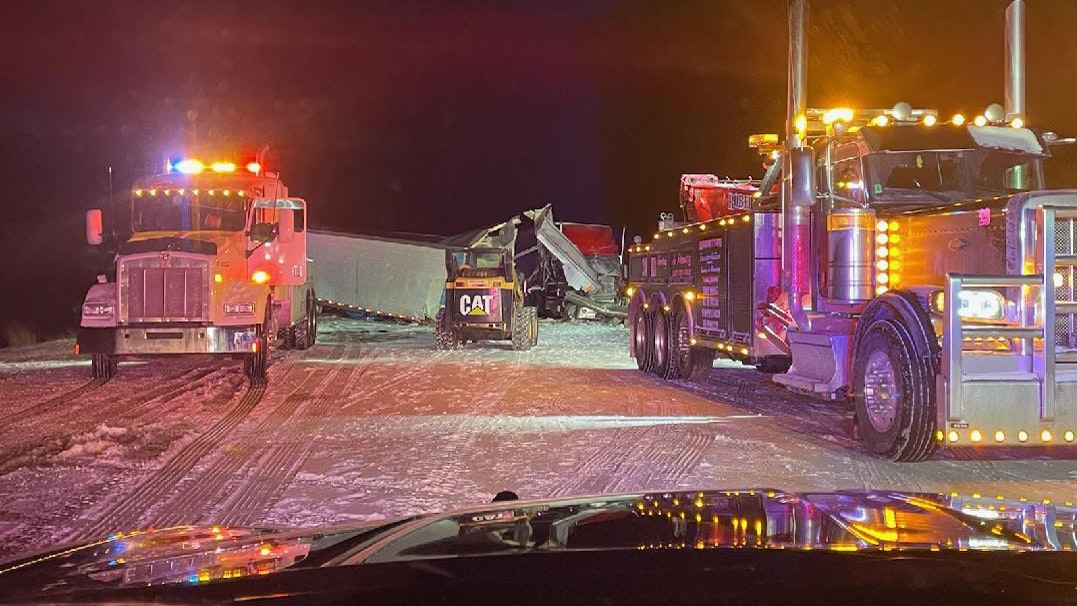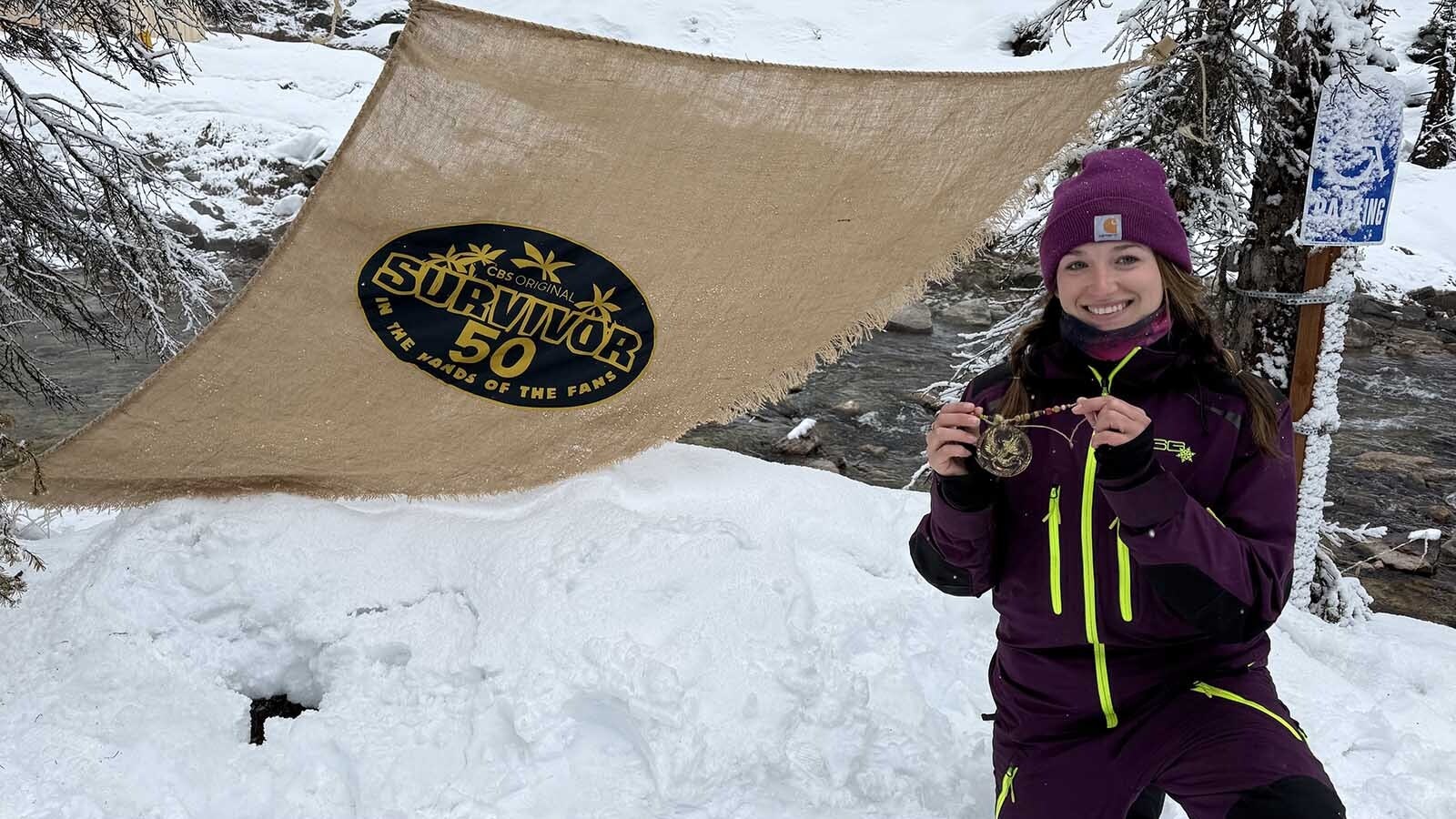CASPER — The challenge of being a short-term “mom” to a child plucked out of a crisis is something Abby Roich embraces.
The 39-year-old is a certified foster parent in the state of Wyoming, and since 2021 has willingly followed a tug on her heart that she believes God put there.
The thought began while she worked at Women, Infants and Children (WIC), the federal agency serving women and children with nutritional needs. It became stronger when she moved into a child development job.
“I was around little kids, often times kids that were in foster care,” Roich said, adding that when she became aware of an opportunity for Wyoming Department of Family Services foster parent training, she signed up.
Now nearly 15 short-term child placements and four years later, she remains glad she did.
“It’s a pretty beautiful thing and definitely a wild ride,” she said.
The “beautiful” part Roich describes is being able to love on a child coming out of some pretty unimaginable family situations.
The “wild” part involves navigating solutions to that trauma and dealing with issues such as head lice or more major medical conditions that put kids in an emergency room.
Wyoming Department of Family Services Social Services Field Administrator Sara Serelson said that as of Thursday, there were 978 children in foster care around the state. Most are placed needing the kind of emergency foster care that Roich provides in her Casper home.
Wyoming’s Process
Unlike other states where DFS social workers have power to place a child in protective custody, Wyoming law gives that authority to law enforcement, certain medical personnel and judges.
Serelson said the agency’s philosophy that children do best with family or people they know means social workers try to bring a grandparent or relative into the situation who can provide the temporary care. They then go to teachers or people who are part of their lives.
When that option becomes unworkable, social workers turn to people like Roich.
Serelson said statistics from July 2023 to June 2024 show Wyoming with 681 certified foster parents. There were 397 non-relative certified foster parents, 220-certified foster parents who were related to their charges and 64 certified specialized foster parents who care for children with severe medical needs or those who require enhanced care.
There also are children who are cared for by relatives who are not certified, Serelson said.
Those who are certified receive reimbursement from the state for the care they provide, and the children placed in foster care receive Medicaid insurance to meet any medical, dental or psychological issues.
To become a certified foster parent involves background checks, fingerprinting and training on issues such as the court system, CPR, first aid, and other home care issues. The training and certification process can take a few weeks or longer before everything is in place.
DFS finds it harder to place children in their teens and groups of siblings.
“Sometimes kids end up placed in group homes throughout communities or end up in crisis centers across the state, and that often happens with our older youth,” Serelson said.
She said the department works hard to keep siblings together, but “it means that foster parents have to be willing to take, and have this capacity to take, more children than just one at a time, and so siblings and then older youth are where we see the biggest gaps with foster parents.”
‘A Glimpse Of Normalcy’
Taking in kids who may have been abused, neglected, scared or acting out — and often all at once — can be taxing for emergency foster parents. After all, to the kids, they’re strangers in a strange place.
Roich characterizes being a foster parent who provides emergency care as one of the hardest things she has done, yet continues to love doing. She has set up her house with a room for children under 6 years old.
The bedroom she provides for her young wards includes a special “toy and book nook” that has soft blankets, stuffed animals, books and space to “engage and play” and feel safe.
“It’s just so important that these kids have somewhere to go where they can just be taken care of and kind of get a glimpse of normalcy,” she said. “I just want all the kids that I’ve worked with to know that there’s somebody out there that loves them and cares about them.”
Roich said the kids who arrive from a traumatic situation often don’t understand how they’re feeling or what they are feeling. And she understands that each child is different and used to his or her own routines.
She said she tries her best to understand “what kind of night light is best” and “should the bedroom door be open or closed.” Minor things like that can loom major in a child’s mind adapting to a stranger.
The Casper area where Roich lives and works for Cowboy State Daily as an advertising coordinator is “awesome” in terms of a support network for foster parents, she said.
Roich said she understands how people can be intimidated about stepping into the foster parent role, but characterizes the support she receives from DFS staff, foster parent colleagues and her family and friends as “amazing.”
“Oftentimes when I get these kids, they will have nothing,” she said. “I just reach out on social media and just say does anybody have (this) size clothes or this size shoes.
“It’s a really cool experience, especially when you see how supportive people are in the community.”
Babies And Teens
At DFS, Serelson said efforts focus on trying to put families back together if possible. That effort involves trying to mitigate the circumstances that led to the family breakup, whether it is connecting a parent to mental health treatment, help for substance abuse or “therapeutic” interventions to establish “healthy coping skills and relationships” for parents.
In about 10% of DFS child welfare cases, children cannot be returned to their parents and receive long-term placement with someone who is not their parent, get put under guardianship with a foster parent or are adopted.
About 70% of children placed in emergency foster care are returned to their homes and the remaining 20% represent children who age-out of the process.
DFS statistics show that children under the age of 1 and those between 14 and 16 represent the greatest number of children who come into the foster care system.
Roich is single, and she said serving as an emergency care foster parent fits her circumstances and abilities to balance her job and other parts of her life. Most of the children she’s had are between 18 months and 5-years-old. She said the longest placement she’s had was about three weeks.
Emergency placements typically involve an email or phone call from DFS informing Roich of a need.
Serelson said law enforcement initiates much of the child protection action, so when a need arises DFS works closely with them to find a safe option for the child. She believes many in the public do not understand the amount of effort that goes into keeping children and families from needing someone such as Roich.
“The department really works with more families and more children that don’t end up in foster care, linking them to services in the community, and providing safety planning so they don’t end up in those imminent situations,” she said.
Working with schools, medical providers and other community resources, DFS tries to pair struggling parents and households with mentors and other willing supports to come alongside and help.
“What we know is that people who are around folks who are parenting provide so much support that we are often not having to have the state intervene,” Serelson said. “And that neighbors and communities do so much to support one another. That is the backbone of our society and being able to prevent kids from being harmed or have horrible things happen to them.”
As challenging as the role can be, Roich has no second thoughts about stepping out to act on a divine nudge.
“I don’t ever feel like it’s too hard for me,” she said. “It’s always a huge blessing.”
Contact Dale Killingbeck at dale@cowboystatedaily.com

Dale Killingbeck can be reached at dale@cowboystatedaily.com.









